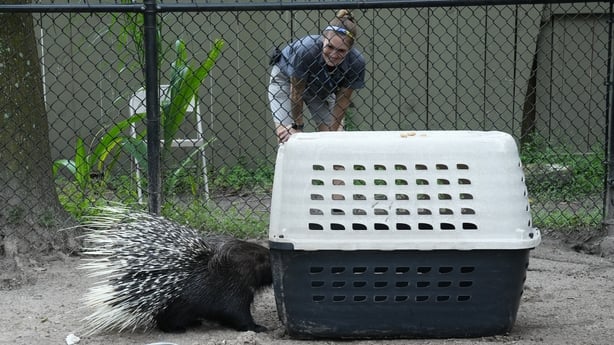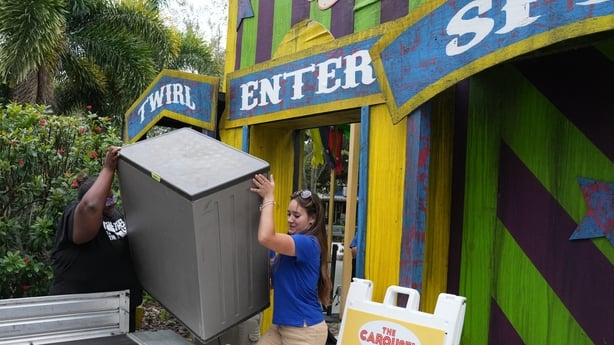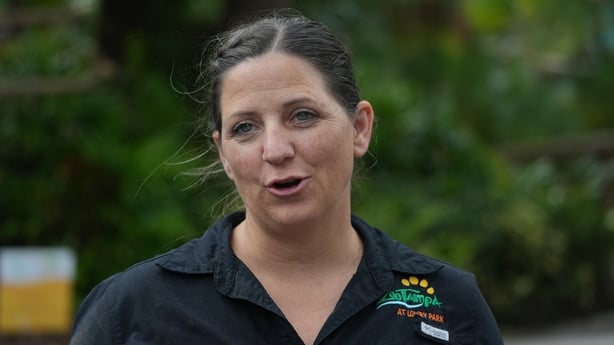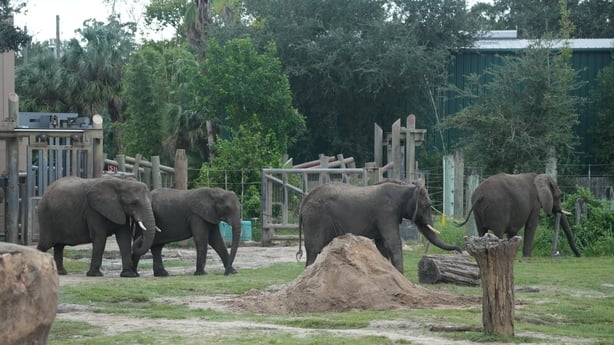After millions of people were ordered to flee along Florida's Gulf Coast, the African elephants, Caribbean flamingos, pygmy hippos and about 1,000 other animals were riding out Hurricane Milton at Tampa's zoo.
For many of the animals, the storm will mean they have to give up the creature comforts of their everyday accommodation, but they will not have to leave ZooTampa's 28-hectare property, even though it is in a mandatory evacuation zone, said Tiffany Burns, senior director of its animal programmes.
Some critters will have to share shuttered barns or wait out the rough weather in crates tucked throughout a dozen hurricane-hardened buildings at the zoo.

A few will stay in their habitats. The alligators will mostly just snooze at the bottom of their ponds, unfazed by Milton's fury.
"Nothing bothers them," Ms Burns said, even with Hurricane Milton being described by meteorologists as a catastrophic and potentially deadly storm.
She added there was no need to put animals in trailers and haul them to other zoos or sanctuaries.

"We're in Florida," Ms Burns said. "We know hurricanes. It's just a matter of watching what degree we're dealing with and responding to that."
The zoo sustained no damage when Hurricane Helene bumped along Florida's Gulf Coast about two weeks ago, she said.
However, Ms Burns said, to her knowledge, the zoo has never had a direct hit since it was started in the 1930s.
Milton made landfall last night as a Category 3 storm near Siesta Key, just south of the zoo at Lowry Park, close to downtown Tampa.

By early this morning, wind speeds reduced to a still dangerous 150km/h, dropping Milton to a Category 1 hurricane, with heavy rains and damaging storm surges.
Zookeepers finished corralling all the animals on Tuesday, she said.
The Caribbean flamingos needed extra care, being herded into a canvas chute to guide them into a trailer and then carried in groups to a barn.
Elephants and giraffes were given extra hay and water in case their barns get blocked off by debris.
Florida Aquarium relocates penguins ahead of Hurricane Milton
The dozen zookeepers riding out the storm with their furry and feathered charges include a veterinarian and maintenance workers.
The zoo is supplied with generators and fuel, along with extra food and supplies for all the critters, in case the zoo is cut off.
Each species reacts differently to big storms, Ms Burns explained.
Its flock of macaws - a type of long-tailed parrots - can get agitated and need extra branches to chew and shred, she said.

They are also put in a secure room where they are free to fly around and perch.
Some of the orangutans will hide under blankets, while some might play as usual, she said.
Baby animals will feel safe next to their mothers. The owls and armadillos love the crates during storms, giving them a secure feeling of hiding in a cave.
"Our animals are absolutely resilient," Ms Burns said. "Over the years they continue to amaze us. And our teams are great about identifying animals that need extra care."
"We really try to minimize their stress," she said.

